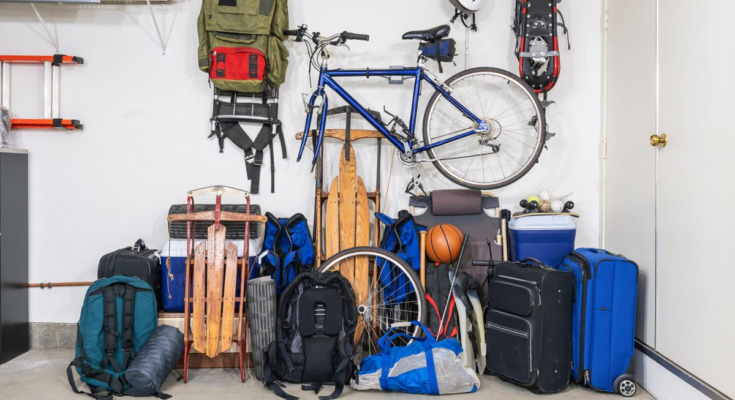
Gear for outdoor adventures often gets tossed in the garage or to the back of the closet when you’re done using it—and that’s where it stay, forgotten, until the next excursion. It may be many months before you discover your tent is musty or your inflatable raft has sprung a leak. It’s not uncommon for items that are showing some wear and tear to be replaced rather than repaired, but that can get expensive quickly. Here are some ways to get more miles out of your camping and other outdoor gear, and save some money while you’re at it.
How to dry and store your camping and other outdoor gear
The first step to preserving your gear is prevention. The way your outdoor gear is stored can impact how long it will last, so taking a little extra time to put it away with some care can save you a lot of hassle later on. One big thing to do is to make sure that you dry out tents, rain gear, ropes, and any other items that might get wet. Even if they seem like they’re dry, it’s a good idea to spread items out and allow them some time to dry more thoroughly after you get home.
Set up your tent in a cool, dry place overnight to make sure it’s thoroughly dried out before you pack it up. Raincoats and other rain gear should be hung up, and ropes should be stretched out for drying. Once your gear is dry, rather than putting it in a compression sack or a stuff sack, fold it and put it in a larger bag for storage. Ropes should be coiled loosely and also stored in a larger bag. This will help keep the fibers from developing creases and kinks that can later cause weak spots where they will tear.
How to repair tears in your gear
Finding a leak in your tent or a raincoat when you’re home and dry is always better than finding it by getting unexpectedly wet on an adventure. Inspect the seams and check for holes or rips. Depending on the material of your tent, bag, or other gear, you might be able to re-stitch the seam with a needle and thread. If it’s rubber or other similar material, you can use an adhesive to close a torn seam. For holes, go with a patch kit.
G/O Media may get a commission

24% Off
Braun Electric Razor for Men
Clean
Has a special flexible head to hit everywhere you need it to, has a variety of different functions to use to fit your preferred style, and is designed to last seven years.
How to re-waterproof your gear
Another maintenance trick for making your gear last longer is to re-waterproof it. While manufacturer waterproofing will last pretty long, it can break down with use. You can use a spray-on waterproofing product for tents and other outdoor gear that is too large to fit in a washing machine. For smaller items like clothing, a wash-in product is the best option because it will last longer.
Remove batteries or use rechargeable devices
are a common source for broken gear. It’s easy to forget to take the batteries out of electronic items—but that can lead to corrosion over time. Keep your batteries separate from flashlights, lanterns, and headlamps, and store them in a cool, dry place to prevent this type of damage. You could also invest in rechargeable LED lights and headlamps—they’ll get a much longer battery life and don’t have the type of batteries that you’ll need to remember to remove.
Keep these repair supplies on hand
While some repairs will need to be made at home, it’s a good idea to have some basic repair supplies on hand while you’re out on an adventure, too. A sewing kit, patches, zipper repair kit, and a tent repair kit are all small, inexpensive things that will help you keep your gear in working order (and keep you warm and dry) on your next outdoor adventure.



